How to Do the Push-Up to Side Plank
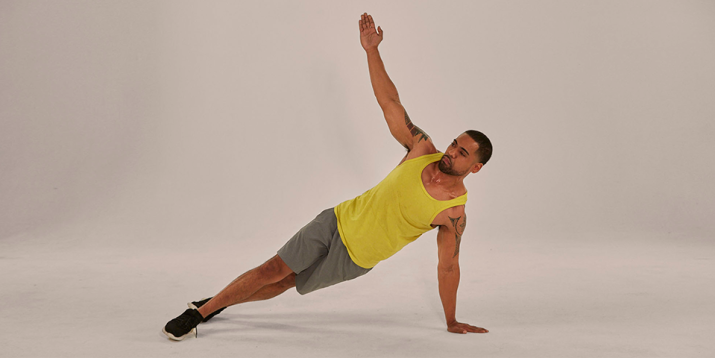
The push-up to side plank is a true full-body exercise.
This move takes the push-up, which is already a crazy-effective full-body strength move on its own, and pairs it with the challenging side plank core exercise for added strength and stability benefits.
“By transitioning from the traditional plank at the top of your push-up into the side plank, there’s a transference of load from the front to the side of the body,” says Chelsea Aguiar, NCSF-CPT, founder of Athaya Fitness in New York. “This forces both the core and shoulders to stabilize in two different positions through one fluid motion.”
And as humans need to be able to move efficiently in all directions, multi-dimensional moves like the push-up to side plank can help you stay strong at all points on the axis.
Here’s how to nail this exercise for full-body benefits.
Push-Up to Side Plank: Step-by Step-Instructions
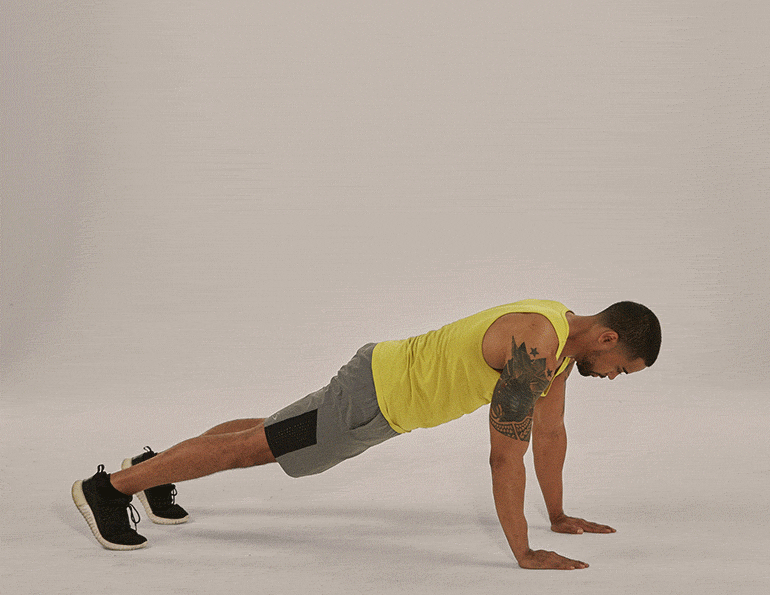
- Start in push-up position with your hands in line with and slightly wider than your shoulders, your feet together, and your body straight from head to heels. Squeeze your glutes and brace your core to lock your body into position.
- Keeping your elbows tucked (not flared), core engaged, and head in line with your spine, bend your elbows and retract your shoulder blades, lowering your torso as far as possible while maintaining a straight body position.
- Pause, and then push back up to the starting position.
- Once you return to the starting position, shift your weight onto your left hand, stack your right foot on top of the left, roll your right hip back, and extend your right arm toward the ceiling (the only parts of your body on the floor will be your left hand and the outside edge of your left foot). Keep your body straight throughout the movement.
- Bring your right hand and foot back down to the floor, and repeat the sequence, switching sides on the next side plank. Continue alternating sides on each rep.
Muscles Targeted by the Push-Up to Side Plank

The push-up to side plank engages multiple muscle groups, building muscular strength and joint stability in a single rep. Here are the major muscles you’ll work during the push-up to side plank.
- Chest: The push-up calls upon your pectoral muscles, which draw your upper arms toward the midline of your body. They engage during the raising and lowering phases of the push-up.
- Shoulders: Your deltoids won’t get much of a break during this move. Each provides major assistance during both phases of the push-up, and shoulders even more of the load in isolation during the side plank.
- Triceps: Much like your shoulders, your upper arms will get plenty of work between the combined moves. They’ll help lower and raise your body in the push-up and keep your body lifted in the side plank.
- Core: The push-up will emphasize the muscles of your rectus abdominis (a.k.a. the six-pack muscle) and the transverse abdominis beneath it, while the side plank will attack the obliques framing both. They all work together to keep your trunk rigid as you roll between your front and sides.
- Glutes: The muscles of your butt contribute in varying degrees, shifting from core stabilization in the push-up to isometric abduction (pushing your leg out to the left or right) in the side plank.
Other Push-Up and Plank Variations
Whether you’ve already mastered the push-up to side plank and are looking for more of a challenge, or you’re looking to work up to it, try these other variations on the move.
1. Plank
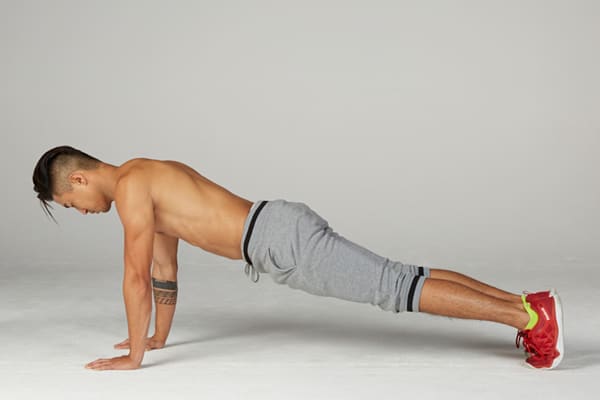
The isometric movement that forms the foundation of the push-up to side plank.
This is the top of the push-up that, once mastered, will ease the transition between the two moves and train proper alignment of the spine.
2. Push-up
Work not only on proper form, but also the muscular endurance necessary to bang out 10 or more reps before adding the side plank.
3. Side plank
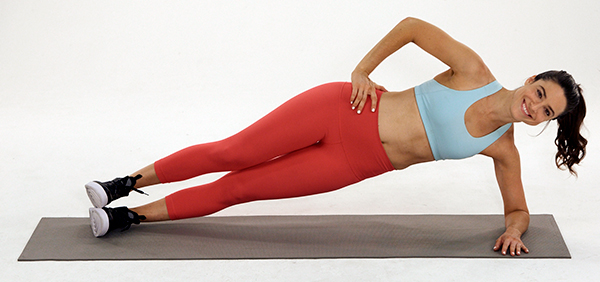
The final component of the push-up to side plank requires strength and stability. Start on your forearm if the full extension of the arm proves too challenging.
4. Side plank with hip lift
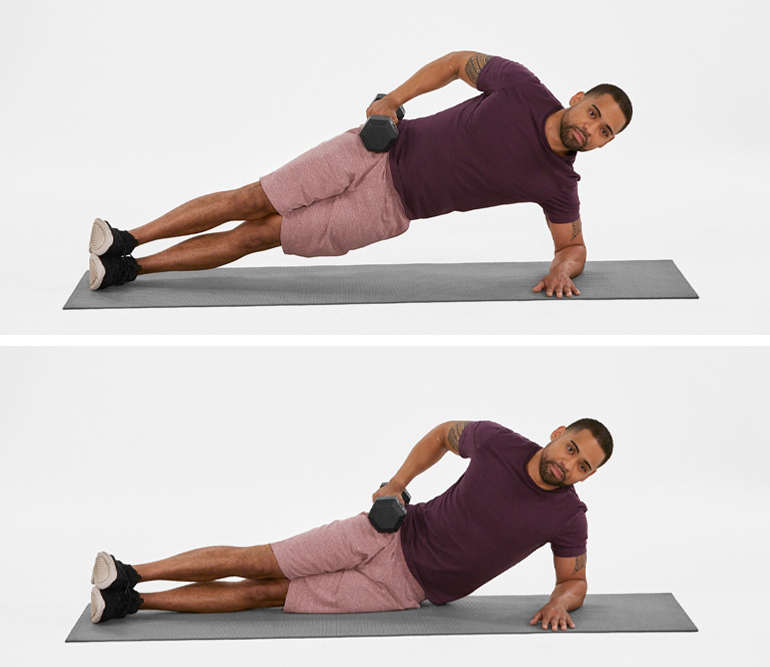
This move focuses solely on the side plank, adding a weighted hip raise to further challenge strength and stability.
5. Incline push-up
If you need to work up to the full push-up, you may want to start by performing the move with your hands on an elevated surface.
6. Decline push-up
If you’re looking for more challenge from your push-ups, perform them with your feet on an elevated surface.
7. Plyo push-up
If you’re getting real air in this power-building variation, you can add a clap after each explosive thrust up from the floor.
Also be sure to check out these challenging push-up variations, as well as these next-level side plank exercises.
